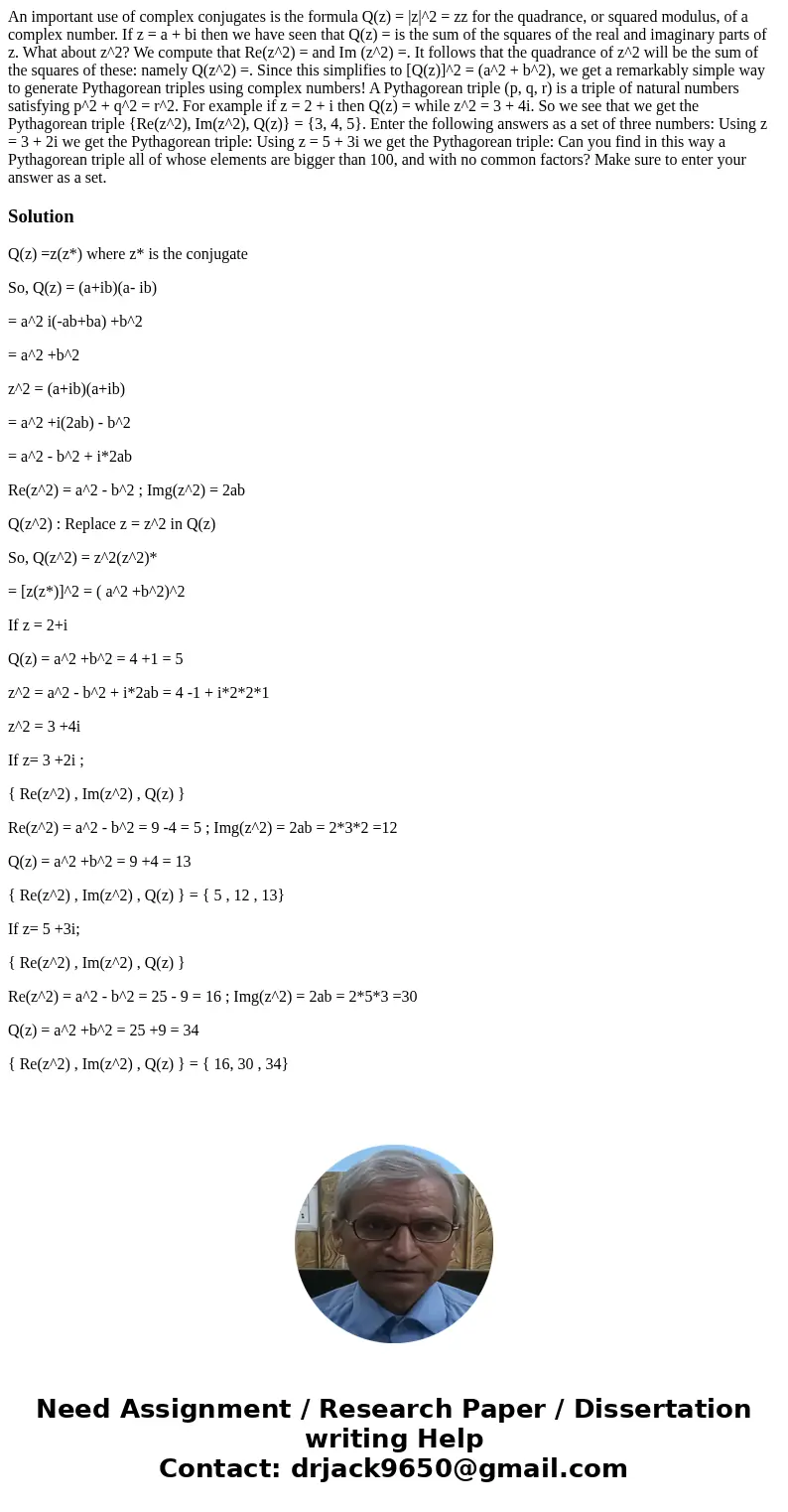An important use of complex conjugates is the formula Qz z2
An important use of complex conjugates is the formula Q(z) = |z|^2 = zz for the quadrance, or squared modulus, of a complex number. If z = a + bi then we have seen that Q(z) = is the sum of the squares of the real and imaginary parts of z. What about z^2? We compute that Re(z^2) = and Im (z^2) =. It follows that the quadrance of z^2 will be the sum of the squares of these: namely Q(z^2) =. Since this simplifies to [Q(z)]^2 = (a^2 + b^2), we get a remarkably simple way to generate Pythagorean triples using complex numbers! A Pythagorean triple (p, q, r) is a triple of natural numbers satisfying p^2 + q^2 = r^2. For example if z = 2 + i then Q(z) = while z^2 = 3 + 4i. So we see that we get the Pythagorean triple {Re(z^2), Im(z^2), Q(z)} = {3, 4, 5}. Enter the following answers as a set of three numbers: Using z = 3 + 2i we get the Pythagorean triple: Using z = 5 + 3i we get the Pythagorean triple: Can you find in this way a Pythagorean triple all of whose elements are bigger than 100, and with no common factors? Make sure to enter your answer as a set.
Solution
Q(z) =z(z*) where z* is the conjugate
So, Q(z) = (a+ib)(a- ib)
= a^2 i(-ab+ba) +b^2
= a^2 +b^2
z^2 = (a+ib)(a+ib)
= a^2 +i(2ab) - b^2
= a^2 - b^2 + i*2ab
Re(z^2) = a^2 - b^2 ; Img(z^2) = 2ab
Q(z^2) : Replace z = z^2 in Q(z)
So, Q(z^2) = z^2(z^2)*
= [z(z*)]^2 = ( a^2 +b^2)^2
If z = 2+i
Q(z) = a^2 +b^2 = 4 +1 = 5
z^2 = a^2 - b^2 + i*2ab = 4 -1 + i*2*2*1
z^2 = 3 +4i
If z= 3 +2i ;
{ Re(z^2) , Im(z^2) , Q(z) }
Re(z^2) = a^2 - b^2 = 9 -4 = 5 ; Img(z^2) = 2ab = 2*3*2 =12
Q(z) = a^2 +b^2 = 9 +4 = 13
{ Re(z^2) , Im(z^2) , Q(z) } = { 5 , 12 , 13}
If z= 5 +3i;
{ Re(z^2) , Im(z^2) , Q(z) }
Re(z^2) = a^2 - b^2 = 25 - 9 = 16 ; Img(z^2) = 2ab = 2*5*3 =30
Q(z) = a^2 +b^2 = 25 +9 = 34
{ Re(z^2) , Im(z^2) , Q(z) } = { 16, 30 , 34}

 Homework Sourse
Homework Sourse